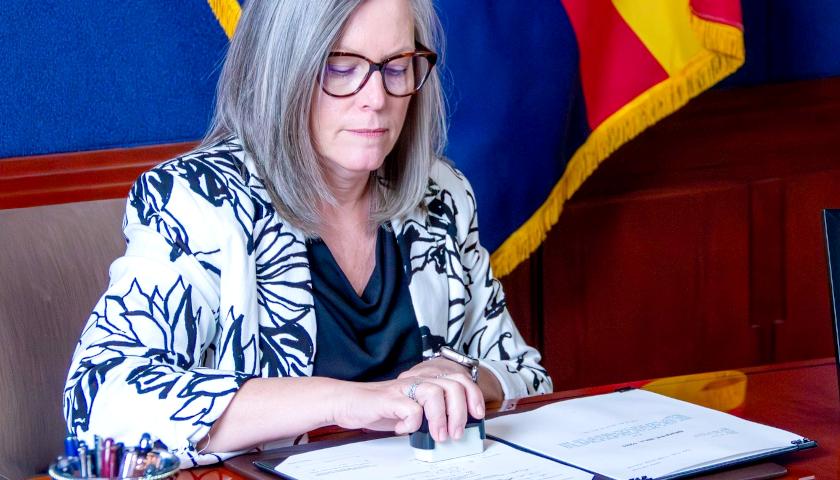by Bruce Walker
A Michigan bill seeking statewide allowance for some former public employees to pay income taxes on pensions has been introduced by state Rep. Kathy Schmaltz, R-Jackson.
House Bill 4578, if passed, would exempt pensions of Michigan Department of Corrections retirees from the state income tax. Michigan allows retired police, firefighters, and county jail corrections officers to fully deduct their pensions from the Michigan income tax.
“The corrections officers in our state prisons have grueling, high-pressure jobs guarding our prisons and protecting our communities,” Schmaltz (pictured above) said in a statement. “The men and women who dedicate their careers to this work deserve our unwavering appreciation for their dedication, resilience, and commitment to maintaining order, safety, and rehabilitation.”
Kettering University School of Management Professor of Practice John Grether told The Center Square that HB4578, despite its good intentions, is another piece of flawed legislation.
“The problem with exceptions is that they remind us that government power is accrued and validated by the ability to play favorites and determine winners and losers,” Grether said.
“Why not just increase the pay for current officers and a one-time step-up in basis for current pensioners?” he asked.
According to data posted by the House Fiscal Agency, Michigan employed 5,012 corrections officers and 11,038 total departmental employees in 2021, the most recent year data is available.
Attempts to determine the number of retired corrections officers receiving pensions were unsuccessful. Both Schmaltz’s office and the House Fiscal Agency were contacted by The Center Square but said the information sought was not immediately available.
“Pension income is a form of income, so it is unclear why some income (pensions) is not subject to the income tax while other income (income from work) is,” University of Michigan-Flint economics professor Chris Douglas said in an email to The Center Square.
Douglas noted that Michigan may not be able to sustain the tax exemptions.
“The state has a $9 billion surplus, but this is a one-time surplus largely as a consequence of COVID spending at the federal level through the American Rescue Plan,” he said.
“A one-time surplus cannot sustain a permanent loss of tax revenue or increase in spending,” Douglas added. “I still haven’t heard how the state will fund things like the exemption of pension income from the income tax and universal pre-K when the budget surplus runs out, though it wouldn’t surprise me if the state hasn’t thought that far ahead. As California’s $32 billion deficit shows, the surplus can run out pretty quickly. However, I don’t know how many state corrections officers will be impacted by this legislation or what the cost to the state will be.”
– – –
Bruce Walker is a regional editor at The Center Square. He previously worked as editor at the Mackinac Center for Public Policy’s MichiganScience magazine and The Heartland Institute’s InfoTech & Telecom News.
Photo “Kathy Schmaltz” by Kathy Schmaltz for State Representative. Background Photo “Corrections Officer Talking to Probationer” by Kindel Media.




